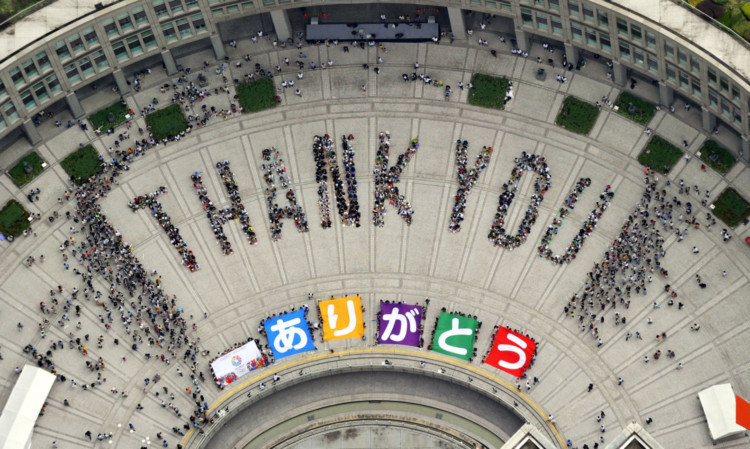The notoriously-contrary IOC played safe on Saturday.
After side-stepping pre-vote favourites to choose London for 2012 and Rio for 2016, International Olympic Committee delegates meeting in Buenos Aires placed the 2020 summer Olympics and Paralympics into the “safe hands” of Tokyo ahead of Istanbul and Madrid.
Supported by a rare appearance from one of Japan’s Imperial family and a promise of a safe Games from the country’s prime minister, Tokyo won a majority of second-round votes to beat the Istanbul bid.
Madrid had earlier been eliminated in a first round of secret voting in the Argentinian capital.
There was no late run to the finish line this time. And, as the dust settled, it seemed the IOC had not been swayed by the candidate cities’ strengths but rather how they would best cope with, or manage, their weaknesses.
All three bid teams tried to play down recent negativity, but were constantly forced on the defensive in the run-up to Saturday’s vote.
Madrid’s Achilles’ heel was the precarious state of the Spanish economy. The capital’s response was to focus its bid on proposing a low-cost, austerity Olympics. But a parsimonious bid a fraction of London’s £9 billion was perhaps never going to win sport’s greatest prize.
The Istanbul candidacy seems to have been subsumed by the triple whammy of Turkey’s proximity to Syria, violent anti-government protests and the banning of 31 athletes for alleged drug misuse.
And, though Tokyo was viewed as the safest candidate and slight favourite, it had faced recent disclosures over radioactive leaks from the Fukushima nuclear plant. This forced Toyko’s bid team to send letters to all IOC members seeking to allay fears about the crippled factory.
So why are the Games returning to Toyko after 46 years, and what does it mean for Team GB and Courier readers?
Technical know-how, infrastructure and financial certainty were offered in meticulously ticked boxes during the Japanese presentation. Also promised was a “compact Games” with 85% of the 36 venues within 8km.
Importantly, however, the breaking of Japanese royal protocol by Princess Hisako of Takamado at the closing stages was comparable to that of Lord Coe’s emotional intervention in 2005.
Her very arrival was a sensation and her passionate speech in flawless English supported by Prime Minister Shinzo Abe’s promise over Fukushima safety “It has never done, and will never do, any damage in Tokyo” convinced many wavering delegates.
So tsunami-hit Japan is hoping the XXXII Olympiad has a transformative effect the way Tokyo 1964 came to symbolise the country’s re-emergence after the years of war.
Yet despite the jubilant scenes in the Japanese capital following Saturday night’s vote, many neutrals would have favoured the Games going to Istanbul, which fell at the same hurdle in 2000 and 2008.
The prospect of a first Games in a predominantly Muslim country, at the 8000-year-old frontier between Europe and Asia, had the ‘wow’ factor.
Meanwhile, the 500-strong British team will inevitably use an Asian preparation camp ahead of the Games. Prior to Beijing in 2008 they were based at Macao, one of China’s specially-administered areas. Suitably acclimatised, they will then hop over to the athletes’ village in Tokyo Bay, in sight of the £600 million revamp of the 1964 National Olympic Stadium under a striking Zaha Hadid design.
Tokyo is eight hours ahead of London, so some events will take place during our night-time, with late-night finals at lunchtime BST. The Courier will be your trusted catch-up point as usual.
The IOC’s 125th session in Buenos Aires continued yesterday, where members ended months of speculation by returning wrestling to the 2020 Tokyo Olympics.
A space was freed when the ancient sport was dropped in February, though it was then allowed to reapply.
It had faced a challenge from a joint baseball/softball bid both dropped as individual sports after Beijing 2008 while squash, was making a first attempt to reach the Games.
Wrestling received a majority of 49 votes, while the combined baseball/softball bid got 24 votes and squash 22.
